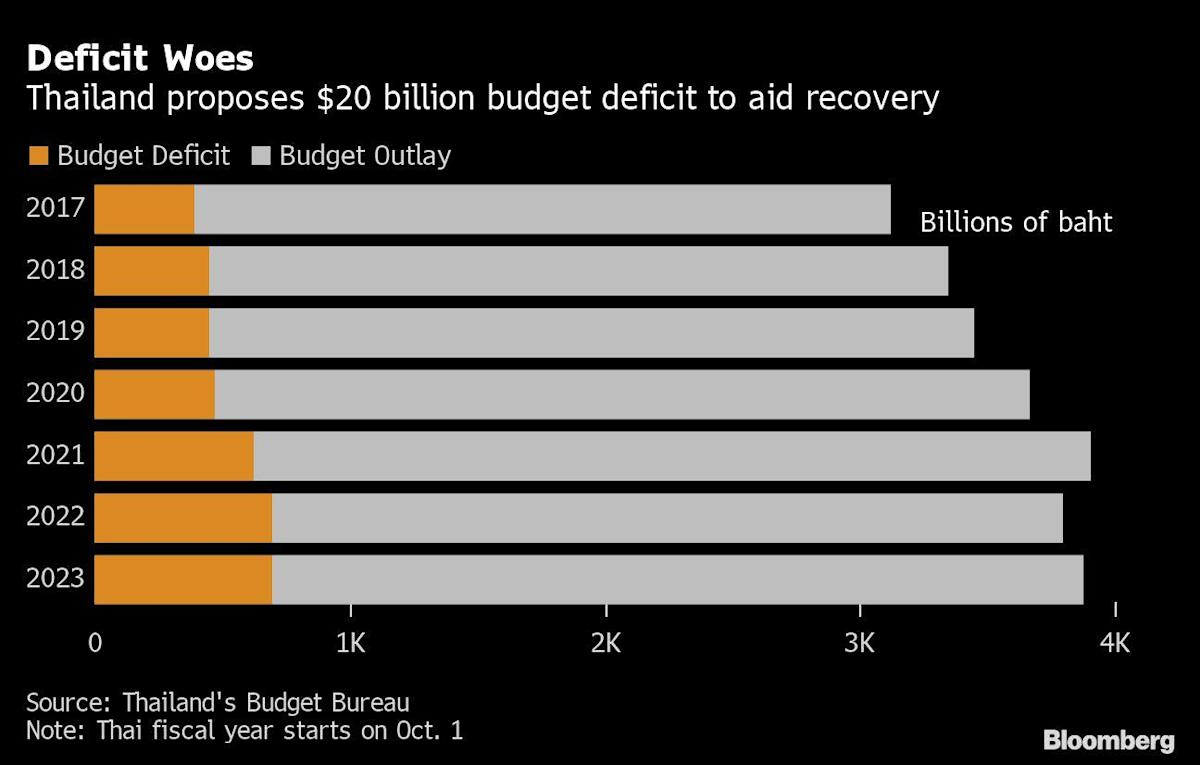
(Bloomberg) — Thailand will embrace a high budget deficit for a third year as it sticks to an expansive fiscal policy to support a recovery facing risks from high inflation and global uncertainties.
Most Read from Bloomberg
The budget shortfall is estimated at 695 billion baht ($20 billion), or about 22% of the total outlay, in the fiscal year starting Oct. 1, according to preliminary plans presented to parliament Tuesday. It will be the third year in a row when the deficit has stayed above 600 billion baht, according to budget bureau data.
Although Southeast Asia’s second-largest economy is forecast to expand between 3.2% to 4.2% next year, it still faces threats from a volatile global financial and economic system, Prime Minister Prayuth Chan-Ocha told parliament on Tuesday, while opening the debate on the budget bill. Under such circumstances, the government needs to implement an expanded fiscal policy using budget deficit, he said.
Thailand is set to post the slowest pace of growth in the region this year as it still grapples with the devastating impact of the pandemic on its tourism industry. Despite the highest inflation in almost 13 years, the central bank has kept borrowing costs steady to support private consumption in the economy.
Retail inflation may return to a range of 0.5% to 1.5% next year with an expected easing of global shortages of raw materials and commodity prices, Prayuth said. The government will manage its revenue and expenditure efficiently to ensure continued recovery with the help of an accommodative monetary policy, he said.
Thailand’s public debt has ballooned to about 61% of the gross domestic product from about 41% before the pandemic as it borrowed about 1.5 trillion baht to fund Covid stimulus measures.
The total budget outlay for 2022-23 will rise 2.7% to 3.19 trillion baht with revenue seen increasing 4.1% to 2.61 trillion baht from the current fiscal year, the prime minister said.
The parliament will vote on the initial budget proposals on Thursday before they are sent to various committees for scrutiny. The house will take up the bill for a second and third reading in August before sending it to the senate for its consideration and approval.
Most Read from Bloomberg Businessweek
©2022 Bloomberg L.P.




